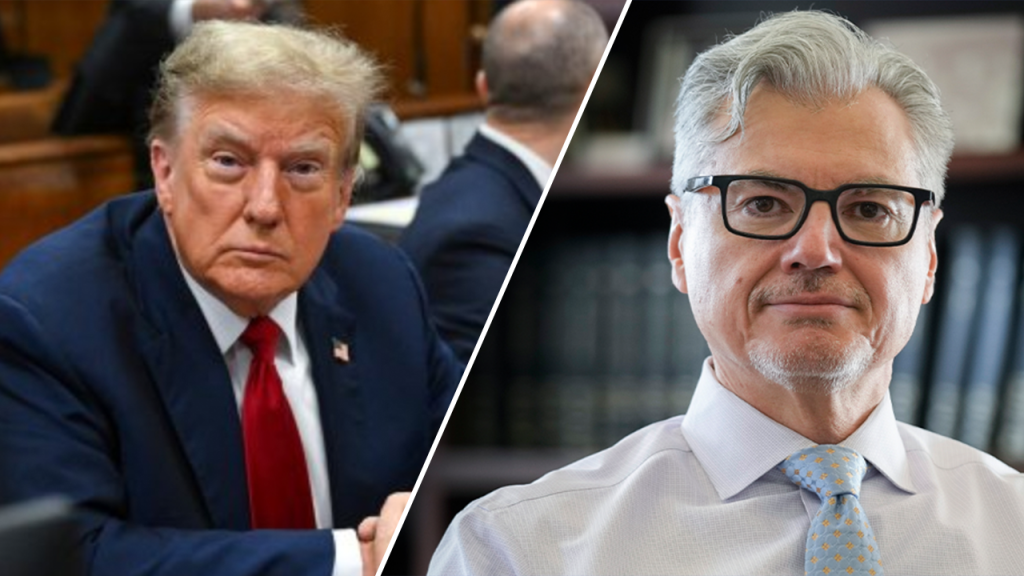House Republican Conference Chair Elise Stefanik filed an ethics complaint against Judge Juan Merchan for an alleged conflict of interest related to his daughter’s role at Authentic Campaigns, a firm known for representing Democratic politicians. Merchan is presiding over the criminal trial against former President Trump, who faces 34 counts of falsifying business records brought by Manhattan District Attorney Alvin Bragg. Stefanik emphasized the potential bias in the case, as Trump has requested Merchan recuse himself due to his daughter’s ties to Democratic clients. The complaint was filed with the New York State Commission on Judiciary Conduct, referencing a previous private caution to Merchan over illegal political donations to Biden and Democrats in 2020.
Stefanik pointed out that her clients, such as Rep. Adam Schiff, have fundraised off of Trump’s indictment and trial, raising concerns about impartiality in the case. She argued that Merchan’s daughter could benefit from Trump’s legal troubles, given her clientele’s financial gain from the charges against him. The complaint alleges that Merchan’s failure to recuse himself despite a conflict of interest damages the court’s appearance of impartiality in an unprecedented criminal trial involving a former president during a presidential election campaign. Stefanik emphasized the need for New Yorkers and Americans to have confidence in the fair dispensation of justice, particularly in politically sensitive cases where bias may come into play.
Defense attorneys for Trump rested their case without calling him to testify, following prosecutors resting their case. Merchan dismissed the jury until after Memorial Day, while the trial continued to unfold. The complaint against Merchan highlighted the potential consequences of a lack of impartiality in such a high-profile case, pointing to the financial incentives for his daughter tied to Trump’s charges. Stefanik argued that a straightforward application of ethical guidelines required Merchan to recuse himself, and requested an investigation into his conduct and appropriate disciplinary action if necessary.
Stefanik’s complaint against Merchan underscores the challenges of ensuring impartiality in politically charged legal proceedings, particularly involving high-profile individuals like former President Trump. The conflict of interest allegations related to Merchan’s daughter’s ties to Democratic clients raise concerns about the potential for bias in the case and the impact on the court’s credibility. The complaint emphasizes the need for judicial independence and fairness in such cases to uphold the public’s trust in the legal system. Stefanik’s actions reflect a broader debate about the role of politics in the judiciary and the importance of maintaining judicial integrity and credibility in high-stakes trials.
The complaint filed by Stefanik against Merchan raises important questions about judicial ethics and the need for transparency and impartiality in high-profile legal cases. The accusations of bias and conflict of interest in the Trump trial underscore the challenges of ensuring fair and independent legal proceedings, particularly in politically sensitive cases. The complaint highlights the potential consequences of perceived bias and the importance of upholding the rule of law and judicial integrity. Stefanik’s actions draw attention to the complexities of navigating political influences in the legal system and the critical role of ethical standards in maintaining public trust in the judiciary.
Stefanik’s complaint against Merchan serves as a reminder of the importance of upholding ethical standards in the legal profession and ensuring that judges maintain their independence and impartiality. The allegations of bias and conflict of interest in the Trump trial underscore the need for transparency and accountability in the justice system. The complaint reflects broader concerns about the influence of politics in legal proceedings and the impact on public perceptions of the fairness and integrity of the judiciary. By raising these issues, Stefanik’s actions contribute to a broader conversation about the role of ethics in the legal profession and the importance of upholding the credibility of the judicial system.













